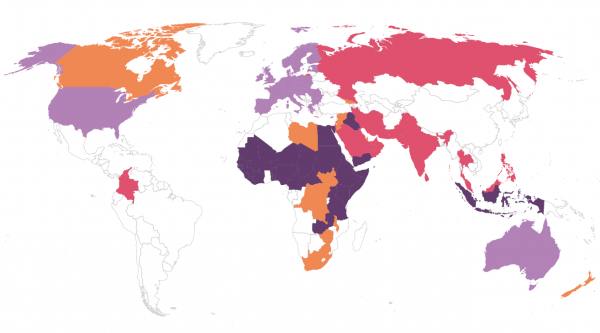Forced marriage is defined as the union between two people where at least one of the spouses has not presented their consent or their will to carry out this union. If the spouses or one of them is under 18 years, it is called early or child marriage.
It is a violation of human rights, which despite being considered illegal, continues to affect millions of women and girls around the world.
It is a form of gender-based violence that is often accompanied by early and unwanted pregnancies and births, causing a high rate of maternal and infant morbidity and mortality. In addition, this makes them more vulnerable to violence (physical, psychological, sexual and economic) and can lead to suicide or escape from the community of women to avoid it.
This practice threatens the future of girls and women, robbing them of their right to decide about their lives, disrupting their education and preventing their full participation in the economic, political and social spheres.
Currently, this phenomenon is widespread in countries in North Africa, the Middle East, sub-Saharan Africa, the Middle East and Latin America. The South Asian region tops the global ranking, with half of its girls married before the age of 18. It is closely followed by sub-Saharan Africa, with 39% of its girls, with Niger, the country with the highest rate of child marriages in the world, with 77%. The rate in the Latin America and Caribbean region is 23%.

Some of the factors that explain forced marriages are:
- Increase the prestige of families.
- Maintain family unity and ethnic identity.
- Avoid behaviors that are considered inappropriate.
- Guarantee the subsistence of girls.
- Control sexual behavior, as well as sexual or gender identity.
- Get administrative advantages in the diaspora.
Forced marriage is closely related to female genital mutilation because most girls subjected to FGM will be forced into marriage.
